Kommentar: Den 22. november 2019 var det 56 år siden, John F Kennedy, de Forenede Staters første og sidste katolske præsident blev myrdet ved højlys dag, i Dallas i Texas. De fleste mennesker behøver ikke at overbevises om, at han ikke blev dræbt af en énlig skytte, som "bare ikke kunne lide ham", men de fleste undersøgelser af den frygtlige begivenhed har antaget, at det var en ren og skær intern amerikansk affære. Den franske forfatter Laurent Guyénot har en spændende ny teori, som måske kan forklare, hvorfor denne fejlagtige antagele er forblevet uantastet i så længe...
Introduktion
Lige efter midnat den 6. juni, 1968, blev Senator Robert Kennedy myrdet i et baglokale på The Ambassador Hotel i Los Angeles. Han havde lige fejret sin sejer i det califoniske primærvalg, som havde gjort ham til den mest sandsynlige vinder at blive valgt som Demokraternes præsidentkandidat. hans popularitet var så stor, at Richard Nixon på den republikanske side havde lille chance. I en alder af 43 år, ville han være blevet den yngste amerikanske præsident, efter at have været den yngste chefanklager i sin brors regering. Hans død åbnede vejen for Nixon, som til slut blev præsident otte år efter at have tabt til John F. Kennedy i 1960.
Jon blev myrdet fire og et halvt år før Robert. Havde han overlevet, ville han afgjort have forblevet præsident indtil 1968. I stedet overtog hans vicepræsident Lyndon Johnson det hviide hus i 1963 og blev så upopulær, at han trådte tilbage i 1968. Interessant nok blev Johnson præsident den samme dag John døde og aflsluttede sin embedsperiode nogle få måneder efter Roberts død. Han var ved magten under begge mordundersøgelser.
Og begge undersøgelser er i en bred kreds anset for at være tilsløringer. I begge tilfælde er den officielle konklusion fyldt med modsigelser. Vi vil sammenfatte dem her. Men vi vil gøre noget mere: vi vil vise, at nøglen til at løse begge sager ligger i forbindelsen mellem dem. Og vi vil løse dem udenfor enhver rimelig tvivl.
As Lance deHaven-Smith has remarked in Conspiracy Theory in America:
"It is seldom considered that the Kennedy assassinations might have been serial murders. In fact, in speaking about the murders, Americans rarely use the plural, 'Kennedy assassinations'. [...] Clearly, this quirk in the Kennedy assassination(s) lexicon reflects an unconscious effort by journalists, politicians, and millions of ordinary Americans to avoid thinking about the two assassinations together, despite the fact that the victims are connected in countless ways."[1]John and Robert were bound by an unshakable loyalty. Kennedy biographers have stressed the absolute dedication of Robert to his elder brother. Robert had successfully managed John's campaign for the Senate in 1952, then his presidential campaign in 1960. John made him not only his Attorney General, but also his most trusted adviser, even on matters of Foreign or Military affairs. What John appreciated most in Robert was his sense of justice and the rectitude of his moral judgment. It is Robert, for example, who encouraged John to fully endorse the cause of the Blacks' civil rights movement[2].
Given this exceptional bond between the Kennedy brothers, what is the probability that the two Kennedy assassinations were unrelated? Rather, we should start with the assumption that they are related. Basic common sense suggests that the Kennedy brothers have been killed by the same force, and for the same motives. It is, at least, a logical working hypothesis that Robert was eliminated from the presidential race because he had to be prevented from reaching a position where he could reopen the case of his brother's death. Both his loyalty to his brother's memory, and his obsession with justice, made it predictable that, if he reached the White House, he would do just that. But was there, in 1968, any clear indication that he would?
Did Bobby plan to reopen the investigation on his brother's assassination?
The question has been positively answered by David Talbot in his book Brothers: The Hidden History of the Kennedy Years, published in 2007 by Simon & Schuster. Robert had never believed in the Warren Report's conclusion that Lee Harvey Oswald was the sole assassin of his brother. Knowing too well what to expect from Johnson, he had refused to testify before the Warren Commission. When its report came out, he had no choice but to publicly endorse it, but "privately he was dismissive of it," as his son Robert Kennedy, Jr. remembers[3]. To close friends who wondered why he wouldn't voice his doubt, he said: "there's nothing I can do about it. Not now."[4]
From 22 November 1963, Robert was alienated and monitored by Johnson and Hoover. Although still Attorney General, he knew he was powerless against the forces that had killed his brother. Yet he lost no time beginning his own investigation; he first asked CIA director John McCone, a Kennedy friend, to find out if the Agency had anything to do with the plot, and came out convinced that it hadn't. In March 1964, he had a face-to-face conversation with mobster Jimmy Hoffa, his sworn enemy, whom he had battled for ten years, and whom he suspected of having taken revenge on his brother. Robert also asked his friend Daniel Moynihan to search for any complicity in the Secret Service, responsible for the President's security[5]. And of course, Robert suspected Johnson, whom he had always mistrusted, as Jeff Shesol documents in Mutual Contempt: Lyndon Johnson, Robert Kennedy, and the Feud that Defined a Decade (1997).
In fact, a mere week after JFK's death, November 29, 1963, Bill Walton, a friend of the Kennedys, travelled to Moscow and passed to Nikita Khrushchev, via a trusted agent who had already carried secret communications between Khrushchev and John Kennedy, a message from Robert and Jacqueline Kennedy; according to the memo found in the Soviet archives in the 90s by Alexandr Fursenko and Timothy Naftali (One Hell of a Gamble, 1998), Robert and Jackie wanted to inform the Soviet Premier that they believed John Kennedy had been "the victim of a right-wing conspiracy," and that "the cooling that might occur in U.S.-Soviet relations because of Johnson would not last forever."[6]
Robert also contacted a former MI6 officer who had been a friend of his family when his father was Ambassador in London. This British retired officer in turn contacted some trusted friends in France, and arrangements were made for two French Intelligence operatives to conduct, over a three-year period, a quiet investigation that involved hundreds of interviews in the United States. Their report, replete with innuendo about Lyndon Johnson and right-wing Texas oil barons, was delivered to Bobby Kennedy only months before his own assassination in June of 1968. After Bobby's death, the last surviving brother, Senator Ted Kennedy, showed no interest in the material. The investigators then hired a French writer by the name of Hervé Lamarr to fashion the material into a book, under the pseudonym of James Hepburn. The book was first published in French under the title L'Amérique brûle, and was translated under the title Farewell America: The Plot to Kill JFK. Its conclusion is worth quoting:
"President Kennedy's assassination was the work of magicians. It was a stage trick, complete with accessories and fake mirrors, and when the curtain fell, the actors, and even the scenery disappeared. [...] the plotters were correct when they guessed that their crime would be concealed by shadows and silences, that it would be blamed on a 'madman' and negligence."[7]
Comment: It's a superb work, which Laura Knight-Jadczyk serialized with commentary in 2006. It begins here, in reverse order. It is also available as an e-book under the title JFK: The Assassination of America.
Robert had planned to run for the American Presidency in 1972, but the escalation of the Vietnam War precipitated his decision to run in 1968. Another factor may have been the opening of the investigation by New Orleans District Attorney Jim Garrison in 1967. Garrison was allowed to view Abraham Zapruder's amateur film, confiscated by the FBI on the day of the assassination. This film, despite evident tampering, shows that the fatal shot came from the "grassy knoll" well in front of the President, not from the School Book Depository located behind him, where Oswald was supposed to be shooting from.
When talk of the investigation began, Kennedy asked one of his closest advisors, Frank Mankievitch, to follow its developments, "so if it gets to a point where I can do something about this, you can tell me what I need to know." He confided to his friend William Attwood, then editor of Look magazine, that he, like Garrison, suspected a conspiracy, "but I can't do anything until we get control of the White House."[8] He refrained from openly supporting Garrison, believing that since the outcome of the investigation was uncertain, it could jeopardize his plans to reopen the case later, and even weaken his chances of election by construing his motivation as a family feud.
In conclusion, there can be little doubt that, had he been elected president, Robert Kennedy would have done everything possible to reopen the case of his brother's assassination, in one way or another. This fact certainly did not escape John's murderers. They had no other option but to stop him. This first conclusion is a sufficient reason to conduct a comparative analysis of both Kennedy assassinations, in search of some converging clues that might lead us to the trail of a common mastermind. We begin with Robert's assassination.
Sirhan Sirhan, a Palestinian motivated by hatred of Israel?
Just hours after Robert's assassination, the press was able to inform the American people, not only of the identity of the assassin, but also of his motive, and even of his detailed biography.[9] Twenty-four-year-old Sirhan Bishara Sirhan was born in Jordania, and had moved to the United States when his family was expelled from West Jerusalem in 1948. After the shooting, a newspaper clipping was found in Sirhan's pocket, quoting favorable comments made by Robert regarding Israel and, in particular, what sounded like an electoral commitment: "The United States should without delay sell Israel the 50 Phantom jets she has so long been promised." Handwritten notes by Sirhan found in a notebook at his home confirmed that his act had been premeditated and motivated by his hatred of Israel.
Comment: Reminds one of the ridiculously improbable retrieval of a "known" terrorist's passport amidst the tons of rubble in the 911 World Trade Center attack.
That became the story line of the mainstream media from day one. Jerry Cohen of the Los Angeles Times wrote a front page article, saying that Sirhan is "described by acquaintances as a 'virulent' anti-Israeli," (Cohen changed that into "virulent anti-semite" in an article for the The Salt Lake Tribune), and that: "Investigation and disclosures from persons who knew him best revealed [him] as a young man with a supreme hatred for the state of Israel." Cohen infers that "Senator Kennedy [...] became a personification of that hatred because of his recent pro-Israeli statements." Cohen further revealed that:
After September 11, 2001, the tragedy of Robert's assassination was installed into the Neocon mythology of the Clash of Civilizations and the War on Terror story. Sirhan became a precursor of Islamic terrorism on the American soil. In a book entitled The Forgotten Terrorist, Mel Ayton, who specializes in debunking conspiracy theories, claims to present "a wealth of evidence about [Sirhan's] fanatical Palestinian nationalism," and to demonstrate that "Sirhan was the lone assassin whose politically motivated act was a forerunner of present-day terrorism" (as written on the back cover)."About three weeks ago the young Jordanian refugee accused of shooting Sen. Robert Kennedy wrote a memo to himself, [...] The memo said: 'Kennedy must be assassinated before June 5, 1968' - the first anniversary of the six-day war in which Israel humiliated three Arab neighbors, Egypt, Syria and Jordan."[10]
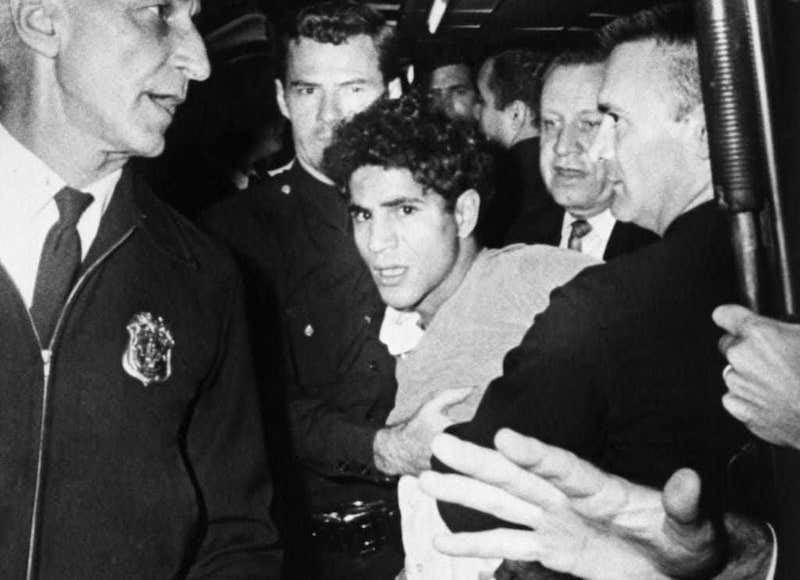
The fact that Sirhan was from a Christian family was lost on Dershowitz. The Jewish Forward took care to mention it on the same occasion, only to add that Islamic fanaticism ran in his veins anyway:"I thought of it as an act of violence motivated by hatred of Israel and of anybody who supported Israel. [...] It was in some ways the beginning of Islamic terrorism in America. It was the first shot. A lot of us didn't recognize it at the time."[11]
"Robert Kennedy was the first American victim of modern Arab terrorism," the Forward journalist hammered; "Sirhan hated Kennedy because he had supported Israel."[12]"But what he shared with his Muslim cousins - the perpetrators of September 11 - was a visceral, irrational hatred of Israel. It drove him to murder a man whom some still believe might have been the greatest hope of an earlier generation."
This leitmotiv of the public discourse begs the question: Was Bobby really a supporter of Israel? But before we answer that question, there is one more pressing one: Did Sirhan really kill Bobby?
Did Sirhan Bishara Sirhan really kill Robert Kennedy?
If we trust official statements and mainstream news, the assassination of Robert Kennedy is an open-and-shut case. The identity of the killer suffers no discussion, since he was arrested on the spot, with the smoking gun in his hand. In reality, ballistic and forensic evidence show that none of Sirhan's bullets hit Kennedy.
According to the autopsy report of Chief Medical Examiner-Coroner Thomas Noguchi, Robert Kennedy died of a gunshot wound to the brain, fired from behind the right ear at point blank range, following an upward angle. Nogushi restated his conclusion in his 1983 memoirs, Coroner. Yet the sworn testimony of twelve shooting witnesses established that Robert had never turned his back on Sirhan and that Sirhan was five to six feet away from his target when he fired.
Tallying all the bullet impacts in the pantry, and those that wounded five people around Kennedy, it has been estimated that at least twelve bullets were fired, while Sirhan's gun carried only eight. On April 23, 2011, attorneys William Pepper and his associate, Laurie Dusek, gathered all this evidence and more in a 58-page file submitted to the Court of California, asking that Sirhan's case be reopened. They documented major irregularities in the 1968 trial, including the fact that the bullet tested in laboratory to be compared to the the one extracted from Robert's brain had not been shot by Sirhan's revolver, but by another gun, with a different serial number; thus, instead of incriminating Sirhan, the ballistic test in fact proved him innocent. Pepper has also provided a computer analysis of audio recordings during the shooting, made by engineer Philip Van Praag in 2008, which confirms that two guns are heard. [13]The presence of a second shooter was signaled by several witnesses and reported on the same day by a few news media. There are strong suspicions that the second shooter was Thane Eugene Cesar, a security guard hired for the evening, who was stuck behind Kennedy at the moment of the shooting, and seen with his pistol drawn by several witnesses. One of them, Don Schulman, positively saw him fire. Cesar was never investigated, even though he did not conceal his hatred for the Kennedys, who according to his recorded statement, had "sold the country down the road to the commies."[14]
Even if we assume that Sirhan did kill Robert Kennedy, a second aspect of the case raises question: according to several witnesses, Sirhan seemed to be in a state of trance during the shooting. More importantly, Sirhan has always claimed, and continues to claim, that he has never had any recollection of his act:
He also claims to have no memory of "many things and incidents which took place in the weeks leading up to the shooting."[15] Some repetitive lines written of a notebook found in Sirhan's bedroom, which Sirhan recognizes as his own handwriting but does not remember writing, are reminiscent of automatic writing.[16]"I was told by my attorney that I shot and killed Senator Robert F. Kennedy and that to deny this would be completely futile, [but] I had and continue to have no memory of the shooting of Senator Kennedy."
Psychiatric expertise, including lie-detector tests, have confirmed that Sirhan's amnesia is not faked. In 2008, Harvard University professor Daniel Brown, a noted expert in hypnosis and trauma memory loss, interviewed Sirhan for a total of 60 hours, and concluded that Sirhan, whom he classifies in the category of "high hypnotizables," acted unvoluntarily under the effect of hypnotic suggestion: "His firing of the gun was neither under his voluntary control, nor done with conscious knowledge, but is likely a product of automatic hypnotic behavior and coercive control."[17]
We know that in the 1960s, American military agencies were experimenting on mental control. Dr Sidney Gottlieb, son of Hungarian Jews, directed the infamous CIA MKUltra project, which, among other things, were to answer questions such as: "Can a person under hypnosis be forced to commit murder?" according to a declassified document dated May 1951.[18] According to Israeli journalist Ronen Bergman, author of Rise and Kill First: The Secret History of Israel's Targeted Assassinations (Random House, 2018), in 1968, an Israeli military psychologist by the name of Benjamin Shalit had concocted a plan to take a Palestinian prisoner and "brainwash and hypnotize him into becoming a programmed killer" aimed at Yasser Arafat.[19]
If Sirhan was hypnotically programmed, the question is: Who had some interest in having a visceral anti-Zionist Palestinian blamed for the killing of Robert Kennedy? Israel, of course. But then, we are faced with a dilemma, for why would Israel want to kill Robert Kennedy if Robert Kennedy was supportive of Israel, as the mainstream narrative goes?
Was Robert Kennedy really a friend of Israel?
The dilemma rests on a misleading assumption, which is part of the deception. In fact, Robert Kennedy was definitely not pro-Israel. He was simply campaigning in 1968. As everyone knows, a few good wishes and empty promises to Israel are an inescapable ritual in such circumstances. And Robert's statement in an Oregon synagogue, mentioned in the May 27 Pasadena Independent Star-News article found in Sirhan's pocket, didn't exceed the minimal requirements. Its author David Lawrence had, in an earlier article entitled "Paradoxical Bob," underlined how little credit should be given to such electoral promises: "Presidential candidates are out to get votes and some of them do not realize their own inconsistencies."
All things considered, there is no ground for believing that Robert Kennedy would have been, as president of the US, particularly Israel-friendly. The Kennedy family, proudly Irish and Catholic, was known for its hostility to Jewish influence in politics, a classic theme of anti-Kennedy literature, best represented by the 1996 book by Ronald Kessler with the highly suggestive title, The Sins of the Father: Joseph P. Kennedy and the Dynasty He Founded.[20]
Robert had not been, in his brother's government, a particularly pro-Israel Attorney General: He had infuriated Zionist leaders by supporting an investigation led by Senator William Fulbright of the Senate Committee on Foreign Relations aimed at registering the American Zionist Council as a "foreign agent" subject to the obligations defined by the Foreign Agents Registration Act of 1938, which had considerably hindered its efficiency (after 1963, the AZD escaped this procedure by changing its status and renaming itself AIPAC)[21].
In conclusion, it is only with outstanding hypocrisy that The Jewish Daily Forward could write, on the 40th anniversary of Bobby's death:
"In remembering Bobby Kennedy, let us remember not just what he lived for, but also what he died for - namely, the precious nature of the American-Israeli relationship."[22]
Comment: From another perspective, it's entirely correct; the US-Israeli relationship, such as it is, was kept - strengethened even - in this 'precious state' thanks to the 'sacraficial offering' of RFK.
Robert Kennedy's death had not been a bad thing for the precious "American-Israeli relationship." Rather, it was a great loss for the Arab world, where Bobby was mourned just as had his brother John before him.
Of course, the fact that the Zionist media lied when granting Robert Kennedy some posthumous certificate of good will toward Israel, and thereby provided Israel with a fake alibi, is not a sufficient reason for concluding that Israel murdered Robert. Even the fact that the masterminds of the plot chose as their programmed instrument an anti-Zionist Palestinian, and thereby stirred a strong anti-Palestinian feeling among Americans at the same time as getting rid of Robert, does not prove that Israel was involved. What is still lacking for a serious presumption is a plausible motive.
The motive of Robert's assassination must be found, not in what Robert publicly declared in an Oregon synagogue during his presidential campaign, but rather in what he confided only to his most close friends: his intention to reopen the investigation on his brother's death. Our next question, therefore, is: What would an unbiased investigation, conducted under the supervision of Robert in the White House, have revealed?
Did the CIA assassinate Kennedy?
It is obvious to anybody just vaguely informed that a genuine investigation would first establish that Oswald was a mere "patsy", as he said himself, a scapegoat prepared in advance to be blamed for the crime and then be slaughtered without a trial. We will not here review the evidence that contradicts the official thesis of the lone gunman. It can be found in numerous books and documentary films.
Just as notorious is the theory that the plot to kill Kennedy originated from a secret network within the CIA, in collusion with extremist elements in the Pentagon. That conspiracy theory looms the largest in books, articles and films that have been produced since John Kennedy died.
That CIA-Pentagon theory, as I will call it (add the military-industrial complex if you wish) has a major flaw in the motive ascribed to the killers: besides getting rid of Kennedy, the theory goes, the aim was to create a pretext for invading Cuba, something the CIA had always pushed for and Kennedy had refused to do (the Bay of Pigs fiasco). With Oswald groomed as a pro-Castro communist, the Dallas shooting was staged as a false flag attack to be blamed on Cuba. But then, why did no invasion of Cuba follow Kennedy's assassination? Why was the pro-Castro Oswald abandoned by the Warren Commission in favor of the lone nut Oswald? Those who address the question, like James Douglass in his JFK and the Unspeakable, credit Johnson with preventing the invasion. Johnson, we are led to understand, had nothing to do with the assassination plot, and thwarted the plotters' ultimate aim to start World War III. This is to ignore the tremendous amount of evidence accumulated against Johnson for fifty years, and documented in such groundbreaking books as Phillip Nelson's LBJ: The Mastermind of JFK's Assassination (2010) or Roger Stone's The Man Who Killed Kennedy: The Case Against LBJ (2013).
Comment: David Talbot has plausibly established, in his book on Allen Dulles, The Devil's Chessboard, that the former CIA chief deliberately set up the Bay of Pigs operation to fail, so that JFK would be blamed and the 'intelligence community' rank-and-file turn on him.
Another weakness in the CIA-Pentagon theory is the lack of agreement about the mastermind of the plot. In fact, one of the names that comes up most often is James Jesus Angleton, the head of Counter-Intelligence within the CIA, about whom Professor John Newman writes in Oswald and the CIA:
"In my view, whoever Oswald's direct handler or handlers were, we must now seriously consider the possibility that Angleton was probably their general manager. No one else in the Agency had the access, the authority, and the diabolically ingenious mind to manage this sophisticated plot."[23]But there is plenty of evidence that Angleton, who was also the head of the CIA "Israel Office," was a Mossad mole. According to his biographer Tom Mangold, "Angleton's closest professional friends overseas [...] came from the Mossad and [...] he was held in immense esteem by his Israeli colleagues and by the state of Israel, which was to award him profound honors after his death."[24] No less that two monuments were dedicated to him at memorial services in Israel during ceremonies attended by chiefs of Israeli Intelligence and even a future Prime Minister.[25]
Comment: Angleton was a one-of-a-kind high-functioning nutcase. See also:
James Jesus Angleton: Inside the paranoid and pathological mind of a CIA chief
Another aspect must be taken into account: if the trail of the CIA is such a well-trodden path among Kennedy researchers, it is because it has been cut and marked by the mainstream media themselves, as well as by Hollywood. And that began even before the assassination, on October 3, 1963, with an article by the New York Times' chief Washington correspondent Arthur Krock. The article denounced the CIA's "unrestrained thirst for power" and quoted an unnamed "very high official" who claimed that the White House could not control the CIA, and that:
"If the United States ever experiences an attempt at a coup to overthrow the Government, it will come from the CIA and not the Pentagon. The agency represents a tremendous power and total unaccountability to anyone."[26]In such a way, The New York Times was planting a sign, a month and a half before the Dallas killing, pointing to the CIA as the most likely instigator of the upcoming coup. The sign said: "The President is going to fall victim of a coup, and it will come from the CIA."
One month after Kennedy's assassination, it was the turn of the Washington Post to use a very similar trick, by publishing an op-ed signed by Harry Truman, in which the former president said he was "disturbed by the way CIA has been diverted from its original assignment." "I never had any thought when I set up the CIA that it would be injected into peacetime cloak and dagger operations," at the point of becoming across the globe "a symbol of sinister and mysterious foreign intrigue [...] there are now some searching questions that need to be answered."[27]
Truman was hinting at the CIA's role in toppling foreign governments and assassinating elected leaders abroad. But given the timing of his article, one month to the day after Dallas, it could only be understood by anyone with ears to hear, and at least subliminally by the rest, as an indictment of the CIA in the Kennedy assassination. This article, widely reprinted in the 1970s after the creation of the Church Committee and the House Select Committee on Assassinations, is regarded as Truman's whistleblowing. Yet its mea culpa style is quite unlike Truman; that is because it was not written by Truman, but by his longtime assistant and ghostwriter, a Russian-born Jew named David Noyes, whom Sidney Krasnoff calls "Truman's alter ego" in his book, Truman and Noyes: Story of a President's Alter Ego (1997). Truman probably never saw the article prior to its publication in the Washington Post morning edition, but he may be responsible for its deletion from the afternoon print runs.[28]
So the two most influential American newspapers, while ostensibly defending the official theory of the lone gunman, have planted directional signs pointing to the CIA. Most Kennedy truthers have followed the signs with enthusiasm.
In the 70s, the mainstream media and publishing industry played again a major role in steering conspiracy theorists toward the CIA, while avoiding any hint of Israeli involvement. One major contributor to that effort was A. J. Weberman, with his 1975 book Coup d'État in America: The CIA and the Assassination of John F. Kennedy, co-authored by Michael Canfield. According to the New York Jewish Daily Forward (December 28, 2012), Weberman had "immigrated to Israel in 1959 and has dual American-Israeli citizenship," and is "a close associate of Jewish Defense Organization founder Mordechai Levy, whose fringe group is a spin-off of the late Rabbi Meir Kahane's militant right-wing Jewish Defense League." Weberman acknowledged Neocon Richard Perle's assistance in his investigation.[29] The Weberman-Canfield book contributed to the momentum that led the House Select Committee on Assassinations (HSCA) to reinvestigate in 1976 the murders of JFK and Dr. Martin Luther King.
It is also in this context that Newsweek journalist Edward Jay Epstein published an interview of George De Mohrenschildt, a Russian geologist and consultant for Texan oilmen who had befriended Oswald and his Russian wife in Dallas in 1962. In this interview, De Mohrenschildt admitted that Oswald had been introduced to him at the instigation of Dallas CIA agent J. Walton Moore.[30] That piece of information is dubious for several reasons: First, Moore was officially FBI rather than CIA. Second, De Mohrenschildt was in no position to confirm or deny the words that Epstein ascribed to him: he was found dead a few hours after giving the interview. In fact, De Mohrenschildt's interview published by Epstein contradicts De Mohrenschildt's own manuscript account of his relationship to Oswald, revealed after his death.[31] De Mohrenschildt's death was ruled a suicide. The Sheriff's report mentions that in his last months he complained that "the Jews" and "the Jewish mafia" were out to get him.[32] Needless to say, Epstein didn't mention anything about this. More suspicions arise from the fact that Epstein's main source for his 1978 book, Legend: the Secret World of Lee Harvey Oswald, was James Jesus Angleton, who was actively spreading disinformation at the time of the HSCA, defending the theory that Oswald was a KGB agent with CIA connections.
That Israeli agents have been instrumental in spreading conspiracy theories targeting the CIA is also evidenced by Oliver Stone's film JFK, released in 1991, starring Kevin Costner in the role of New Orleans District Attorney Jim Garrison. This film, which shook public opinion to the point of motivating the President John F. Kennedy Assassination Records Collection Act of 1992, was produced by Arnon Milchan, described in a 2011 biography as being from his youth "one of the most important covert agents that Israeli intelligence has ever fielded," involved in arms smuggling from the US to Israel.[33] In 2013 Milchan publicly revealed his extended activity as a secret agent of Israel, working in particular to boost Israel's nuclear program.[34] It is therefore no wonder that Stone's film gives no hint of the Mossad connection that Garrison stumbled upon.
Who killed JFK?
By a strange paradox, the authors who stand for the consensual conspiracy theory of a CIA plot against Kennedy build their case on the biography of Oswald, while at the same time claiming that Oswald had almost nothing to do with the killing. If Oswald was "just a patsy," as he publicly claimed, the quest for the real culprits must logically begin by investigating the man who silenced Oswald.
Oswald's assassin is known as Jack Ruby, but few people know that his real name was Jacob Leon Rubenstein, and that he was the son of Jewish Polish immigrants. Ruby was a member of the Jewish underworld. He was a friend of Los Angeles gangster Mickey Cohen, whom he had known and admired since 1946. Cohen was the successor of the famed Benjamin Siegelbaum, aka Bugsy Siegel, one of the bosses of Murder Incorporated. Cohen was infatuated with the Zionist cause, as he explained in his memoirs: "Now I got so engrossed with Israel that I actually pushed aside a lot of my activities and done nothing but what was involved with this Irgun war".[35] Mickey Cohen was in contact with Menachem Begin, the former Irgun chief, with whom he even "spent a lot of time," according to Gary Wean, former detective sergeant for the Los Angeles Police Department. So there is a direct line connecting Jack Ruby, via Mickey Cohen, to the Israeli terrorist ring, and in particular to Menachem Begin, a specialist in false flag terror. We also know that Ruby phoned Al Gruber, a Mickey Cohen associate, just after Oswald's arrest; no doubt he received then "an offer he couldn't refuse," as they say in the underworld.[36] Ruby's defense lawyer William Kunstler wrote in his memoirs that Ruby told him he had killed Oswald "for the Jews," and Ruby's rabbi Hillel Silverman received the same confession when visiting Ruby in jail.[37]
That is not all. At every level of the conspiracy to kill Kennedy, we also find the fingerprints of the Israeli deep state. JFK's trip to Dallas, being officially "non political," was sponsored by a powerful business group known as the Dallas Citizens Council, dominated by Julius Schepps, "a wholesale liquor distributor, member of every synagogue in town, and de facto leader of the Jewish community," as described by Bryan Edward Stone in The Chosen Folks: Jews on the Frontiers of Texas.[38] Kennedy was on his way to the reception organized in his honor when he was shot.
The "host committee" inviting Kennedy was chaired by another influential figure of the wealthy Jewish community in Dallas: advertising executive and PR man Sam Bloom. According to former British Intelligence Officer Colonel John Hughes-Wilson, it was Bloom who suggested to the Police "that they move the alleged assassin [Oswald] from the Dallas police station to the Dallas County Jail in order to give the newsmen a good story and pictures."Oswald was shot by Ruby during this transfer." Hughes-Wilson adds that,"when the police later searched Ruby's home, they found a slip of paper with Bloom's name, address and telephone number on it."[39]
After the Dallas tragedy, Israel's sayanim were also busy fabricating the official lie. Apart from its chairman Earl Warren, chosen for his figurative role as Chief Justice, all key people in the investigative Commission were either personal enemies of Kennedy - like Allen Dulles, the CIA director fired by Kennedy in 1961 - or ardent Zionists. The man who played the key role in fabricating the government lie purveyed by the Warren Commission was Arlen Specter, the inventor of what came to be called the "magic bullet" theory: a single bullet supposed to have caused seven wounds to Kennedy and John Connally sitting before him in the limousine, and later found in pristine condition on a gurney in Parkland Memorial Hospital in Dallas. Specter, who with an ironic touch of chutzpah titled his autobiography Passion for Truth, was the son of Russian Jewish immigrants, and, at his death in 2012, was mourned by the Israeli government as "an unswerving defender of the Jewish State," and by AIPAC, as "a leading architect of the congressional bond between our country and Israel."[40]
So, at all stages of the plot, we find a Zionist cabal including business men, politicians and Irgun-connected gangsters, not forgetting media executives, all devoted to Israel.
The most plausible motive for Israel to kill Kennedy has been revealed by two books: Seymour Hersh's The Samson Option in 1991, then Avner Cohen's Israel and the Bomb in 1998, and the lead has been followed up in 2007 by Michael Karpin in The Bomb in the Basement. What these investigators reveal is that Kennedy, informed by the CIA in 1960 of the military aim pursued at the Dimona complex in the Negev desert, was firmly determined to force Israel to renounce it. With that purpose in mind, he replaced CIA Director Allen Dulles by John McCone, who had, as Eisenhower's chairman of the Atomic Energy Commission (AEC), leaked to The New York Times the truth about Israel's Dimona project; the story was printed on December 19, 1960, weeks before Kennedy was to take office.
As Alan Hart writes, "there can be no doubt that Kennedy's determination to stop Israel developing its own nuclear bomb was the prime factor in his decision to appoint McCone."[41] Then Kennedy urged Ben-Gurion to allow regular inspections of Dimona, first verbally in New York in 1961, and later through more and more insistent letters. In the last one, cabled June 15, 1963 to the Israeli ambassador with instruction to hand it personally to Ben-Gurion, Kennedy demanded Ben-Gurion's agreement for an immediate visit followed by regular visits every six months, otherwise "this Government's commitment to and support of Israel could be seriously jeopardized."[42] The result was unexpected: Ben-Gurion avoided official reception of the letter by announcing his resignation on June 16. As soon as the new Prime Minister Levi Eshkol took office, Kennedy sent him a similar letter, dated July 5, 1963, to no avail. Did Ben-Gurion resign in order to deal with Kennedy from another level?
Five months later, Kennedy's death relieved Israel of all pressure (diplomatic or otherwise) to stop its nuclear program. Faced with Johnson's complete lack of interest in that issue, John McCone resigned from the CIA in 1965, declaring: "When I cannot get the President to read my reports, then it's time to go."
Kennedy's determination to stop Israel's Dimona project was only part of the "Kennedy problem". During his first months in the White House, Kennedy committed himself by letters to Nasser and other Arab heads of State to support UN Resolution 194 for the right of return of Palestinian refugees. Ben-Gurion reacted with a letter to the Israeli ambassador in Washington, intended to be circulated among Jewish American leaders, in which he stated:
"Israel will regard this plan as a more serious danger to her existence than all the threats of the Arab dictators and Kings, than all the Arab armies, than all of Nasser's missiles and his Soviet MIGs. [...] Israel will fight against this implementation down to the last man.'"[43]Kennedy behaved warmly toward Nasser, Israel's worst enemy. Historian Philip Muehlenbeck writes:
"While the Eisenhower administration had sought to isolate Nasser and reduce his influence through building up Saudi Arabia's King Saud as a conservative rival to the Egyptian president, the Kennedy administration pursued the exact opposite strategy."[44]After Kennedy's death, American foreign policy was reversed again, without the American public being aware of it. Johnson cut the economic aid to Egypt, and increased the military aid to Israel, which reached 92 million dollars in 1966, more than the total of all previous years combined.
For 50 years, the Israeli trail in the Kennedy assassination has been smothered, and anyone who mentioned it was immediately ostracized. American congressman Paul Findley nevertheless dared write in March 1992 in the Washington Report on Middle East Affairs: "It is interesting to note that in all the words written and uttered about the Kennedy assassination, Israel's intelligence agency, the Mossad, has never been mentioned." One single author has seriously investigated that trail: Michael Collins Piper, in his 1995 book Final Judgment: The Missing Link in the JFK Assassination Conspiracy. Piper was largely ignored by the mainstream of the Kennedy truth movement. But his work has made its way nevertheless. In 2013, Martin Sandler wrote about Piper's work in his edition of letters by Kennedy, which included those addressed to Ben-Gurion about Dimona: "Of all the conspiracy theories, it remains one of the most intriguing." It is, in fact, a theory widespread in Arab countries.[45]
The case against Lyndon Johnson
Several investigators have identified Lyndon Johnson, Kennedy's vice-president, as the mastermind of the Kennedy assassination. It is, at least, beyond doubt that the plotters acted with the foreknowledge that Johnson, who automatically stepped in as head of State after Kennedy's death, would cover them. The context of national crisis enabled him to bully both Justice and the press while achieving his life's ambition. Johnson not just benefitted from the plot; he participated in its elaboration. As a former senator from Texas, he could mobilize high-ranked accomplices in Dallas to prepare the ambush. Johnson also had his men in the Navy. In 1961, Texan senator John Connally had been appointed as Navy Secretary at the request of Johnson. When Connally resigned eleven months later to run for governor of Texas, Johnson convinced Kennedy to name another of his Texan friends, Fred Korth.
Johnson's privileged control over the Navy is an important aspect of the case because the Navy was critical in the setting up and in the cover-up of the plot. First, contrary to a widespread but erroneous belief, Lee Harvey Oswald had been recruited by the Navy and not by the CIA. He was a Marine, and as a Marine he had worked for the Office of Naval Intelligence (ONI). Secondly, it is at the Naval Hospital in Washington, under the control of Navy officers, that Kennedy's autopsy was performed, after his body had been literally stolen at gunpoint from Parkland Hospital in Dallas. The report of this autopsy stated that the fatal bullet had entered the back of Kennedy's skull, which contradicted the testimonies of twenty-one members of the Dallas hospital staff who saw two entry bullet-wounds on the front of Kennedy's body. This was critical because Oswald was presumably shooting from behind Kennedy, and could not possibly have caused these bullet wounds.
It is noteworthy that Johnson had actually taken advantage of his connections in the Navy to participate in the greatest corruption case ever recorded at that time. His accomplice Fred Korth was forced to resign as Navy Secretary in November 1963, only weeks before the Dallas coup, after the Justice Department headed by Robert Kennedy had implicated him in a fraud involving a $7 billion contract for the construction of 1,700 TFX military aircraft by General Dynamics, a Texan company. Johnson's personal secretary, Bobby Baker, was charged in the same case.
Because of this mounting scandal and other suspicions of corruption, Kennedy was determined to change Vice-President for his upcoming reelection campaign.[46] While in Dallas the day before the President's visit, Nixon publicized the rumor of Johnson's removal, and the Dallas Morning News was reporting on November 22nd: "Nixon Predicts JFK May Drop Johnson." Instead, Johnson became president that very day.
Many Americans immediately suspected Johnson's involvement in the Dallas coup, especially after the publication in 1964 of a book by James Evetts Haley, A Texan Looks at Lyndon, which portrayed Johnson as deeply corrupt. According to his biographer Robert Caro, Johnson was a man thirsting "for power in its most naked form, for power not to improve the lives of others, but to manipulate and dominate them, to bend them to his will."[47]
The evidence incriminating Johnson does not conflict with the evidence against Israel, quite the contrary. First, both trails converge in the person of Jack Ruby, whom Nixon identified as one of "Johnson's boys," according to former Nixon operative Roger Stone.[48] The hypothesis that Ruby acted on Johnson's orders is a likely explanation for some of his odd statements to the Warren Commission:
"If you don't take me back to Washington tonight to give me a chance to prove to the President that I am not guilty, then you will see the most tragic thing that will ever happen." "There will be a certain tragic occurrence happening if you don't take my testimony and somehow vindicate me so my people don't suffer because of what I have done."He said he feared that his act would be used "to create some falsehood about some of the Jewish faith," but added that "maybe something can be saved [...], if our President, Lyndon Johnson, knew the truth from me."[49] With such words, Ruby seems to be trying to send a message to Johnson through the Commission, or rather a warning that he might spill the beans about Israel's involvement if Johnson did not intervene in his favor. We get the impression that Ruby expected Johnson to pardon him.
Yet Johnson did nothing to get Ruby out of jail. Ruby's sense of betrayal would explain why in 1965, after having been sentenced to life imprisonment, Ruby implicitly accused Johnson of Kennedy's murder in a press conference: "If [Adlai Stevenson] was Vice-President there would never have been an assassination of our beloved President Kennedy."[50]
Ruby died from a mysterious disease in his prison in 1967.
A Crypto-Zionist president?
Ruby is not the only link between Johnson and Israel, far from it. In truth, Johnson had always been Israel's man. His electoral campaigns had been funded since 1948 by Zionist financier Abraham Feinberg, who happened to be president of the Americans for Haganah Incorporated, which raised money for the Jewish militia. It is the same Feinberg who, after the Democratic primaries in 1960, made the following proposal to Kennedy, as Kennedy himself later reported to his friend Charles Bartlett: "We know your campaign is in trouble. We're willing to pay your bills if you'll let us have control of your Middle East policy." Bartlett recalls that Kennedy was deeply upset and swore that, "if he ever did get to be President, he was going to do something about it."[51]
It is on record, thanks to Kennedy insider Arthur Schlesinger (A Thousand Days: John Kennedy in the White House, 1965), that the two men who convinced Kennedy to take Johnson as his running mate, were Philip Graham and Joseph Alsop, respectively publisher and columnist of the Washington Post, and strong supporters of Israel.[52] Schlesinger doesn't reveal Graham and Alsop's arguments, and states that Kennedy's final decision "defies historical reconstruction" - a curious statement for a historian so well informed on the topic. But Evelyn Lincoln, Kennedy's personal secretary for twelve years, had her own idea about it. She believed that Kennedy was blackmailed with proofs of his many infidelities to his wife: "Jack knew that Hoover and LBJ would just fill the air with womanizing." Whatever the details of the blackmail, Kennedy once confided to his assistant Hyman Raskin, as an apology for taking Johnson, "I was left with no choice [...] those bastards were trying to frame me. They threatened me with problems and I don't need more problems."[53]
In 2013, Associated Press reported about newly released tapes from Johnson's White House office showing LBJ's "personal and often emotional connection to Israel," and pointed out that under Johnson, "the United States became Israel's chief diplomatic ally and primary arms supplier." An article from the 5 Towns Jewish Times, "Our First Jewish President Lyndon Johnson?" recalls Johnson's continuous support of Jews and Israel in the 1940s and 50s, and concludes: "President Johnson firmly pointed American policy in a pro-Israel direction." The article also mentions that, "research into Johnson's personal history indicates that he inherited his concern for the Jewish people from his family. His aunt Jessie Johnson Hatcher, a major influence on LBJ, was a member of the Zionist Organization of America." And, in an additional note: "The line of Jewish mothers can be traced back three generations in Lyndon Johnson's family tree. There is little doubt that he was Jewish."[54]
Whatever was the reason of Johnson's loyalty to Israel, it is a fact that, thanks to Johnson, Israel could continue its military nuclear program undisturbed, and acquire its first atomic bomb around 1965. Historian Stephen Green writes: "Lyndon Johnson's White House saw no Dimona, heard no Dimona, and spoke no Dimona when the reactor went critical in early 1964."[55]
Thanks to JFK's death, Israel was also able to carry out its plan to annex Palestinian territories beyond the boundaries imposed by the United Nations Partition plan. By leaning on Pentagon and CIA hawks, Johnson intensified the Cold War and created the climate of tension which Israel needed in order to demonize Egyptian president Nasser and reinforce its own stature as indispensable ally in the Middle East.
During the Six Day War of 1967, Israel managed to triple its territory, while creating the illusion of acting in legitimate defense. The lie could not deceive American Intelligence agencies, but Johnson had given a green light to Israel's attack, and even authorized James Angleton of the CIA to give Israel the precise positions of the Egyptian air bases, which enabled Israel to destroy them in just a few hours.
Four days after the start of the Israeli attack, Nasser accepted the ceasefire request from the UN Security Council. It was too soon for Israel, which had not yet achieved all its territorial objectives. On June 8, 1967, the USS Liberty, an NSA spy ship stationed in international waters off Sinai, was bombed, strafed and torpedoed during 75 minutes by Israeli Mirage jets and three torpedo boats, with the obvious intention of sinking it without leaving any survivors. (Even the rescue channels were machine-gunned.) Meanwhile, Johnson, from the White House, intervened personally to prohibit the nearby Sixth Fleet from rescuing the USS Liberty after the crew, despite the initial destruction of its transmitters, had managed to send off an SOS.
The attack would have been blamed on Egypt if it had succeede - that is, if the ship had sunk and its crew had all died. The operation would then have given Johnson a pretext for intervening on the side of Israel against Egypt.
But it failed. The USS Liberty affair was suppressed by a commission of inquiry headed by Admiral John Sidney McCain II, Commander-in-Chief of US Naval Forces in Europe (and Father of Arizona Senator John McCain III). Johnson accepted Israel's spurious "targeting error" explanation. In January 1968 he invited the Israeli Prime Minister, Levi Eshkol, to Washington, and warmly welcomed him to his Texas ranch. What's more, Johnson rewarded Israel by lifting the embargo on offensive military equipment: US-made tanks and aircraft immediately flowed to Tel Aviv.
This failed false flag attack is evidence of the secret complicity of Johnson and Israel, implying high treason on the part of Johnson.
Conclusion
Let's now conclude our overview of the evidence: beside the fact that John and Robert were brothers, their assassinations have at least two things in common: Lyndon Johnson and Israel.
First, their deaths are precisely framed by Johnson's presidency, which was also the context for other political assassinations, such as Martin-Luther King's. Johnson was in control of the State during the two investigations on John and Robert's murders.
Secondly, in both cases, we find the fingerprints of Israel's deep state. In the case of Robert, it is the choice of the manipulated patsy, which was obviously meant to disguise Robert's assassination as an act of hatred against Israel. In the case of John, it is the identity of the man asked to kill the patsy, a Jewish gangster linked to the Irgun.
Johnson and Israel, the two common elements in the Kennedy assassinations, are themselves closely linked, since Johnson can be considered as a high-level sayan, a man secretly devoted to Israel, or owned by Israel, to the point of committing high treason against the nation he had been elected to lead and protect.
The causal link between the two assassinations then becomes clear: even if Robert had been pro-Israel, which he was not, Israel and Johnson would still have had a compelling reason to eliminate him before he got to the White House, where he could - and would - reopen the investigation on his brother's death.
What should have been obvious from the start now appears brightly clear: in order to solve the mystery of the assassination of John Kennedy, one has simply to look into the two other assassinations which are connected to it: the assassination of Lee Harvey Oswald, the man whose trial could have exposed the hoax and possibly put the plotters into the light, and the assassination of Robert Kennedy, the man who would have reopened the case if he had lived. And both these assassinations bear the signature of Israel.
At his death in 1968, Robert Kennedy left eleven orphans, not counting John's two children, whom he had somewhat adopted. John's son, John F. Kennedy Jr., aka John John, who had turned three the day of his father's funeral, embodied the Kennedy myth in the heart of all Americans. The route seemed traced for him to become president one day. He died on July 16, 1999, with his pregnant wife and his sister-in-law, when his private plane suddenly and mysteriously nose-dived into the ocean a few seconds after he had announced his landing on the Kennedy property in Massachusetts.
John John had long been portrayed as a superficial, spoiled and harmless young man. But that image was as misleading as young Hamlet's in Shakespeare's play. John had serious interest in mind, and, at age 39, he was just entering politics. In 1995 he founded George magazine, which seemed harmless until it began to take an interest in political assassinations. In March 1997, George published a 13-page article by the mother of Yigal Amir, the convicted assassin of Israeli Prime Minister Yitzhak Rabin. The article was supporting the thesis of a conspiracy by the Israeli far-right. So JFK Jr. was eliminated while following in the footsteps of his father, entering politics through the door of journalism and taking an interest in the crimes of the Israeli deep state. Canadian-Israeli journalist Barry Chamish believes John Kennedy Jr. was assassinated precisely for that.[56]
The nonsensical notion of a mysterious curse on the Kennedy family is an obvious smoke screen. The unsolved murders of JFK and his two legitimate heirs - his younger brother and his only son - require a more rational explanation. The sense that the official stories about their deaths amount to a huge cover-up is obsessing the American psyche, a bit like a repressed family secret affecting the whole personality from a subconscious level.
President John Kennedy and his brother are heroic, almost Christ-like figures, in the heart of a growing community of citizens who have become aware of the disastrous longtime effect of their assassinations. Only when the American public at large come to grips with the truth of their deaths and honor their legacy and sacrifice will America have a chance to be redeemed and be great again.
Footnotes
[1] Lance deHaven-Smith, Conspiracy Theory in America, University of Texas Press, 2013,kindle 284-292.
[2] John Lewis' testimony is in the PBS documentary American Experience Robert F. Kennedy.
[3] Associated Press, "RFK children speak about JFK assassination," January 12, 2013, on www.usatoday.com
[4] David Talbot, Brothers: The Hidden History of the Kennedy Years, Simon & Schuster, 2007, p. 278-280, 305.
[5] David Talbot, Brothers, op. cit., 2007, p. 21-22.
[6] David Talbot, Brothers, op. cit., p. 25-7.
[7] James Hepburn, Farewell America: The Plot to Kill JFK, Penmarin Books, 2002, p. 269.
[8] David Talbot, Brothers, op. cit., p. 312-314.
[9] Extract of TV news in the documentary film Evidence of Revision: Part 4: The RFK assassination as never seen before, 01:11:42
[10] Jerry Cohen, "Yorty Reveals That Suspect's Memo Set Deadline for Death," Los Angeles Times, June 6, 1968, pages 1 and 12, on latimesblogs.latimes.com/thedailymirror/2008/06/june-6-1968.html. Jerry Cohen, "Jerusalem-Born Suspect Called An Anti-Semite," The Salt Lake Tribune, June 6, 1968, on www.newspapers.com. See also Harry Rosenthal, "Senator Kennedy's support for Israel promoted decision declares Sirhan," The Telegraph, March 5, 1969, on news.google.com
[11] Sasha Issenberg, "Slaying gave US a first taste of Mideast terror,"Boston Globe, June 5, 2008, on www.boston.com
[12] Jeffrey Salkin, "Remember What Bobby Kennedy Died For," Forward.com, June 5, 2008. Also Michael Fischbach, "First Shot in Terror War Killed RFK," Los Angeles Times, June 02, 2003, on articles.latimes.com
[13] Frank Morales, "The Assassination of RFK: A Time for Justice!" June 16, 2012, on www.globalresearch.ca; watch on YouTube, "RFK Assassination 40th Anniversary (2008) Paul Schrade on CNN."
[14] Philip Melanson, The Robert F. Kennedy Assassination: New Revelations On the Conspiracy And Cover-Up, S.P.I. Books , 1994, p. 25. For a full overview, watch Shane O'Sullivan's 2007 investigative documentary RFK Must Die: The Assassination of Bobby Kennedy. For more detail, read his book Who Killed Bobby? The Unsolved Murder of Robert F. Kennedy, Union Square Press, 2008. See also Don Schulman's testimony in The Second Gun (1973), from 42 min 40.
[15] In a parole hearing in 2011, failing to convince the judges for the fourteenth time. Watch on YouTube, "Sirhan Sirhan Denied Parole": www.youtube.com/watch?v=nsm1hKPI9EU
[16] Shane O'Sullivan, Who Killed Bobby? The Unsolved Murder of Robert F. Kennedy, Union Square Press, 2008, p. 5, 44, 103.
[17] Jacqui Goddard, "Sirhan Sirhan, assassin of Robert F.Kennedy, launches new campaign for freedom 42 years later," The Telegraph, December 3, 2011, on www.telegraph.co.uk/search/
[18] Colin Ross, Bluebird: Deliberate Creation of Multiple Personality by Psychiatrists, Manitou Communications, 2000,summary on www.wanttoknow.info/bluebird10pg
[19] David B. Green, "Brainwashing and Cross-dressing: Israel's Assassination Program Laid Bare in Shocking Detail," Haaretz, February 5, 2018.
[20] Ronald Kessler, The Sins of the Father: Joseph P. Kennedy and the Dynasty He Founded, Hodder & Stoughton, 1996.
[21] The Israel Lobby Archive, www.irmep.org/ila/forrel/
[22] Jeffrey Salkin, "Remember What Bobby Kennedy Died For ," op. cit..
[23] Michael Collins Piper, False Flag, op. cit., p. 78.
[24] Tom Mangold, Cold Warrior: James Jesus Angleton: the CIA's Master Spy Hunter, Simon & Schuster, 1991, p. 318.
[25] Michael Howard Holzman, James Jesus Angleton, the CIA, and the Craft of COunterintelligence, University of Massachusetts Press, 2008, p. 153.
[26] "Assassination studies Kennedy knew a coup was coming," on Youtube. Image of Arthur Krock's article is shown on www.youtube.com/watch?v=snE161QnL1U at 1:36.
[27] "Harry Truman Writes: Limit CIA Role to Intelligence," Washington Post, December 22, 1963, quoted in Mark Lane, Last Word: My Indictment of the CIA in the Murder of JFK, Skyhorse Publishing, 2011 , p. 246.
[28] Thomas Troy, "Truman on CIA," September 22, 1993, on www.cia.gov ; Sidney Krasnoff, Truman and Noyes: Story of a President's Alter Ego, Jonathan Stuart Press, 1997.
[29] Michael Collins Piper, False Flags: Template for Terror, American Free Press, 2013, p. 67.
[30] James Douglass, JFK and the Unspeakable: Why He Died and Why It Matters, Touchstone, 2008 , p. 46.
[31] George de Mohrenschilldt, I am a Patsy! on jfkassassination.net/russ/jfkinfo4/jfk12/hscapatsy.htm
[32] Read the Sheriff's Office report on mcadams.posc.mu.edu/death2.txt
[33] Meir Doron, Confidential: The Life of Secret Agent Turned Hollywood Tycoon - Arnon Milchan, Gefen Books, 2011, p. xi.
[34] Stuart Winer, "Hollywood producer Arnon Milchan reveals past as secret agent," The Times of Israel, November 25, 2013, on www.timesofisrael.com ; Meir Doron, Confidential: The Life of Secret Agent Turned Hollywood Tycoon - Arnon Milchan, Gefen Books, 2011, p. xi
[35] Mickey Cohen, In My Own Words, Prentice-Hall, 1975, p. 91-92.
[36] Michael Collins Piper, Final Judgment: The Missing Link in the JFK Assassination Conspiracy, American Free Press, 6th ed., ebook 2005, p. 133-155, 226.
[37] William Kunstler, My Life as a Radical Lawyer, Carol Publishing, 1994, p. 158; Steve North, "Lee Harvey Oswald's Killer 'Jack Ruby' Came From Strong Jewish Background," The Forward, November 17, 2013, on forward.com
[38] Bryan Edward Stone, The Chosen Folks: Jews on the Frontiers of Texas, University of Texas Press, 2010, p. 200.
[39] John Hughes-Wilson, JFK-An American Coup d'État: The Truth Behind the Kennedy Assassination, John Blake, 2014.
[40] Natasha Mozgovaya, "Prominent Jewish-American politician Arlan Specter dies at 82," Haaretz, October 14, 2012, on www.haaretz.com.
[41] Alan Hart,Zionism: The Real Enemy of the Jews, vol. 2: David Becomes Goliath, Clarity Press, 2009 , p. 273.
[42] Warren Bass, Support any Friend: Kennedy's Middle East and the Making of the U.S.-Israel Alliance, 2003, p. 219.
[43] Quoted in George and Douglas Ball, The Passionate Attachment: America's Involvement With Israel, 1947 to the Present, W.W. Norton & Co., 1992, p. 51.
[44] Philip Muehlenbeck, Betting on the Africans: John F. Kennedy's Courting of African Nationalist Leaders, Oxford UP, 2012.
[45] Listen to Libyan leader Muammar Gaddafi on the topic on www.youtube.com/watch?v=PV4kvhs8I8E
[46] Phillip Nelson, LBJ: The Mastermind of JFK's Assassination, XLibris, 2010, p. 372.
[47] Quoted in Phillip Nelson, LBJ: The Mastermind, op. cit., p. 17.
[48] Patrick Howley, "Why Jack Ruby was probably part of the Kennedy conspiracy," The Daily Caller, March 14, 2014, on dailycaller.com
[49] Read Ruby's deposition on jfkmurdersolved.com/ruby.htm
[50] See on YouTube, "Jack Ruby Talks."
[51] Seymour Hersh, The Samson Option: Israel's Nuclear Arsenal and American Foreign Policy, Random House, 1991, p. 94-97.
[52] Arthur Schlesinger, A Thousand Days: John Kennedy in the White House (1965), Mariner Books, 2002, p. 56; Alan Hart, Zionism, vol. 2, op. cit., p. 257.
[53] Phillip Nelson, LBJ: The Mastermind, op; cit., p. 320.
[54] Morris Smith, "Our First Jewish President Lyndon Johnson? - an update!!," 5 Towns Jewish Times, April 11, 2013, on 5tjt.com.
[55] Stephen Green, Taking Sides: America's Secret Relations With a Militant Israel, William Morrow & Co., 1984, p. 166.
[56] Barry Chamish, "The Murder of JFK Jr - Ten Years Later," www.barrychamish.com (also on: www.rense.com/general87/tenyrs.htm).
Laurent Guyénot is the author of JFK-9/11: 50 years of Deep State, Progressive Press, 2014, and From Yahweh to Zion: Jealous God, Chosen People, Promised Land ... Clash of Civilizations, 2018
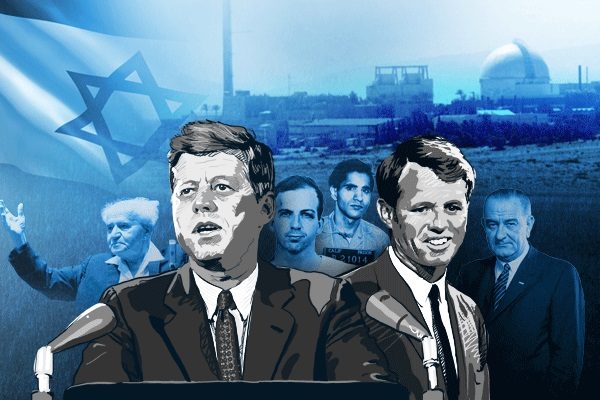
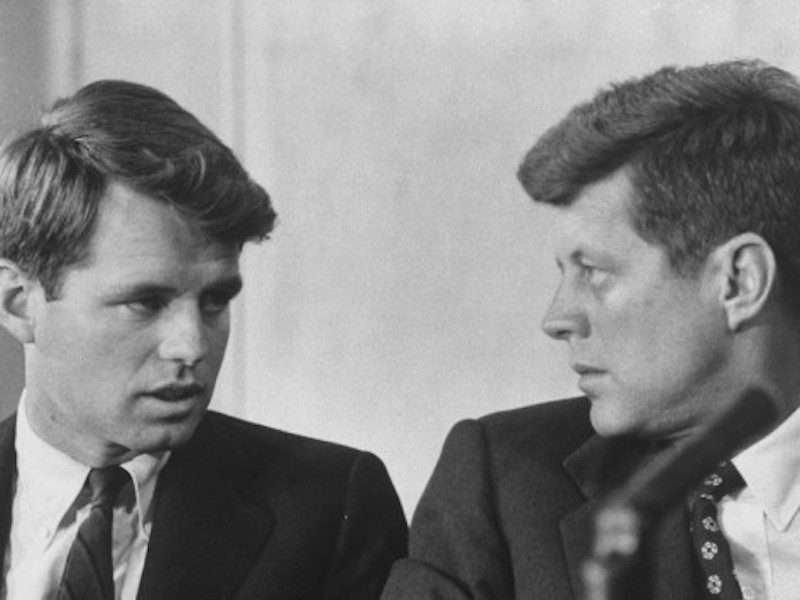
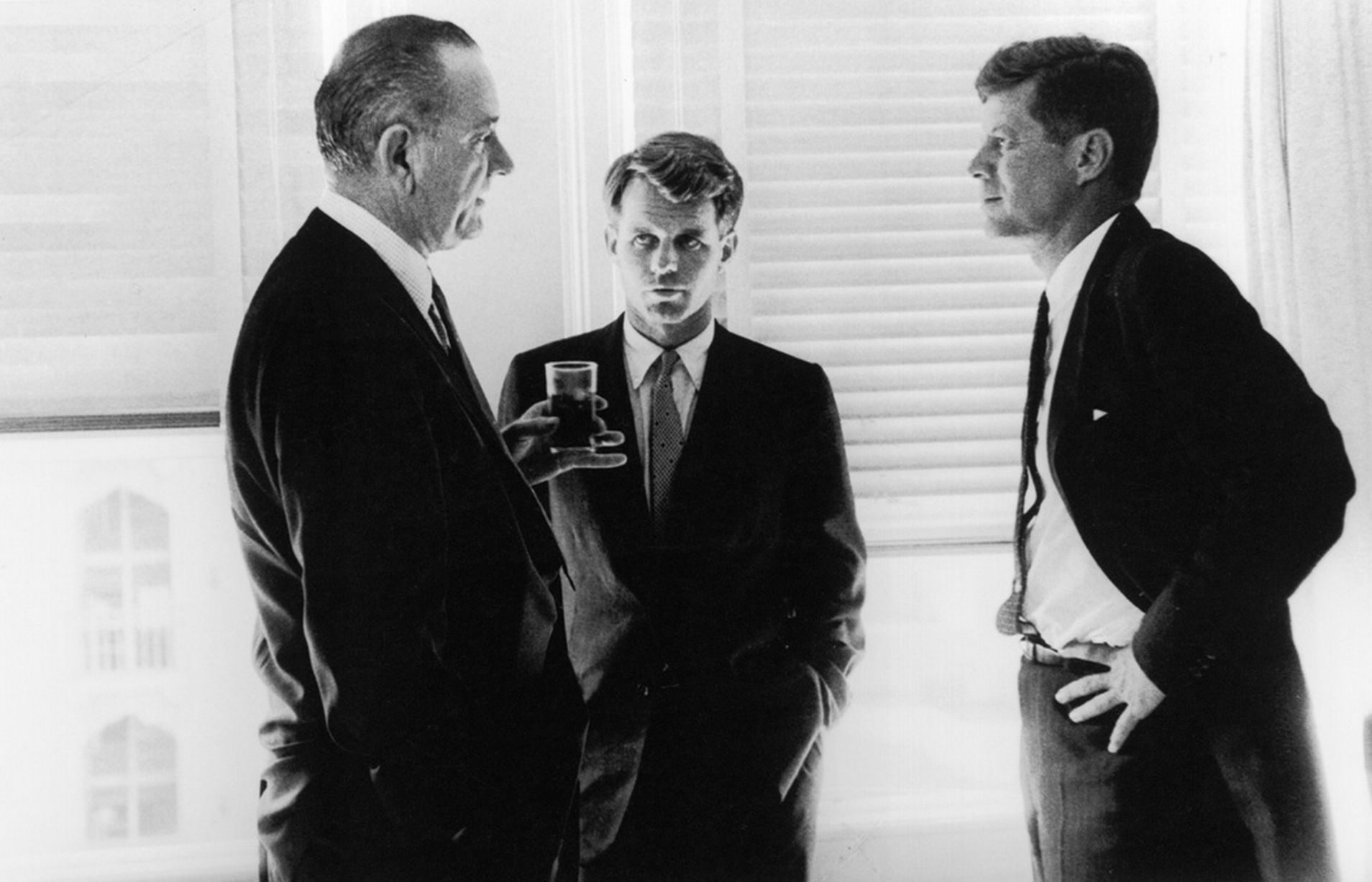
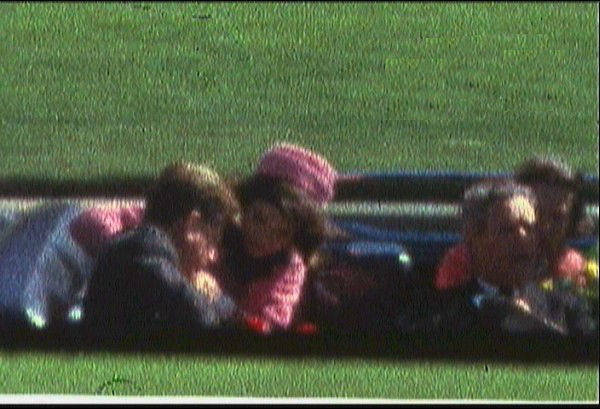
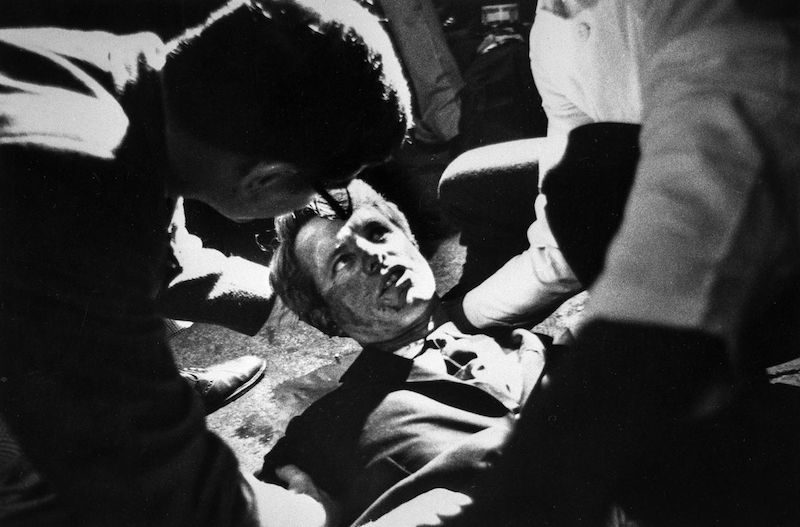
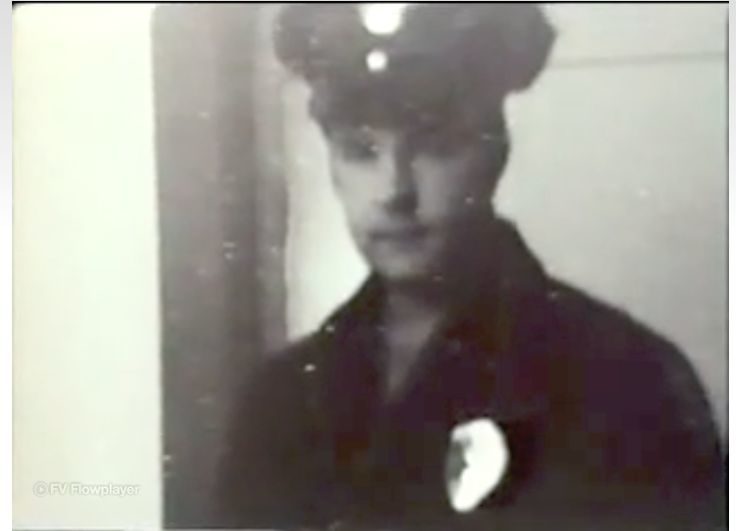
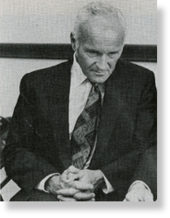
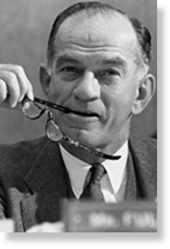
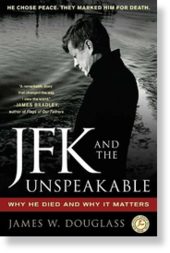
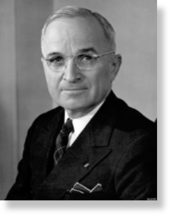
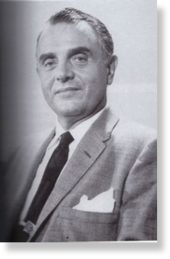
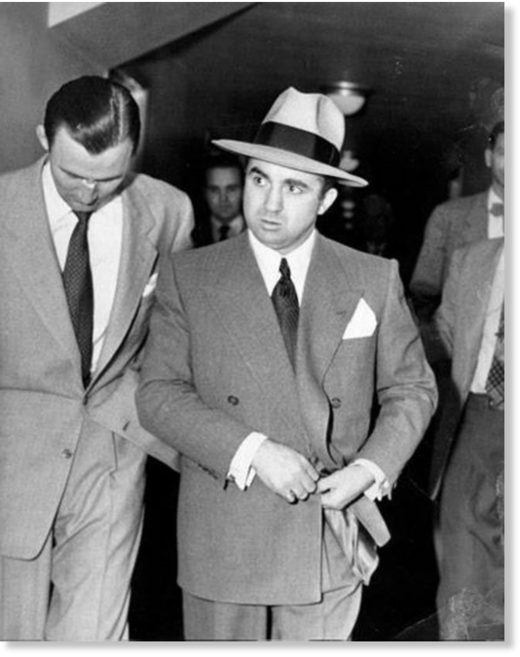
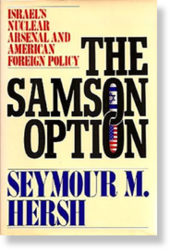
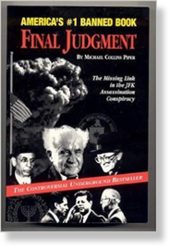
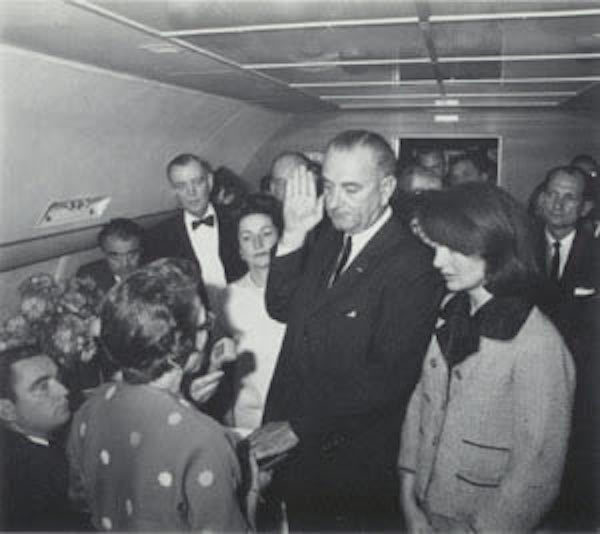
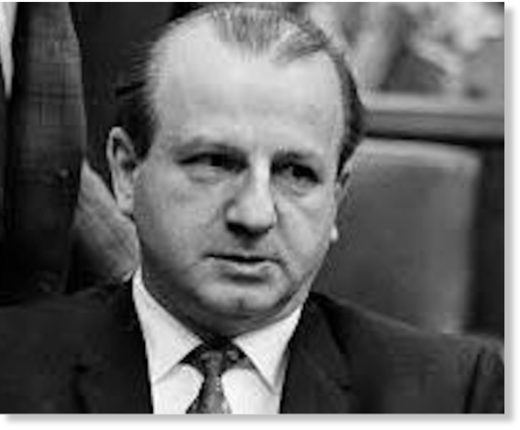
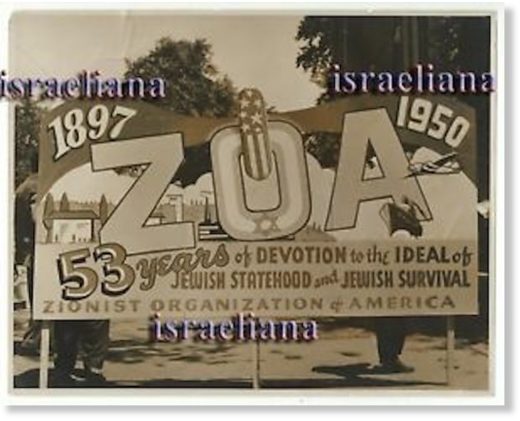
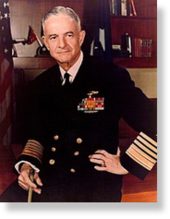
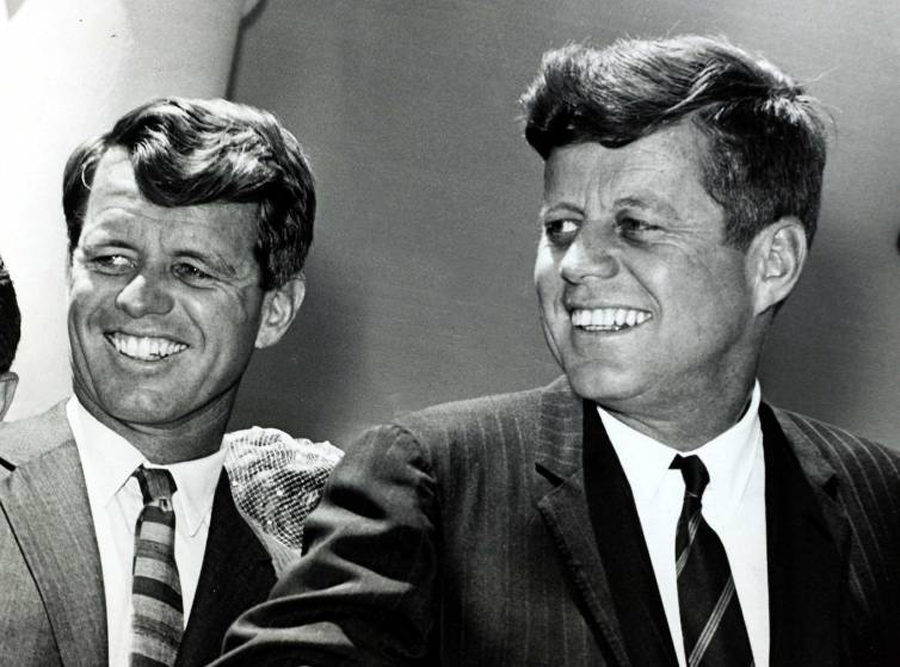



Kommentar: This is an intruiging angle on the JFK assassination, that there was a plot within the plot. We thought as much occurred on 9/11, with an 'Israeli double-cross' taking the Bush gang by surprise and 'binding' them to effectively conduct a cover-up on behalf of perps who had escalated the false-flag attacks to a whole other level.
It makes sense then that there would be historical precedent for such a ruse. At long last, the 'LBJ-did-it' vs the 'CIA-did-it' wings of JFK assassiantion research come together in a logical synthesis.